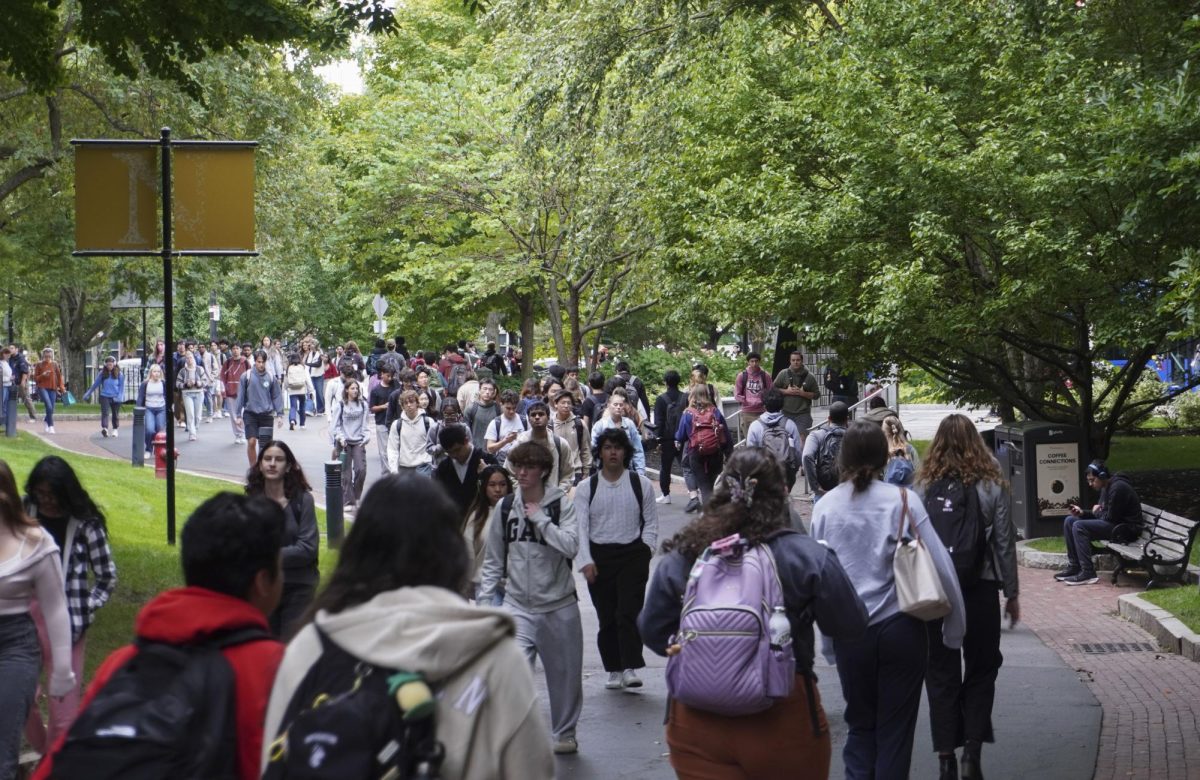Radical Islam poses the threat to the United States, not terrorism, Jewish American historian and Middle East specialist Daniel Pipes said in the Raytheon Amphitheatre last night.
Pipes addressed a crowd of more than 50 people, including a dozen Northeastern University Division of Public Safety (NUPD) officers, and emphasized the need for Americans to identify the enemy of the war and figure out how to respond to that enemy.
“Just as a physician can’t treat a disease, a strategist can’t fight the war without knowing who the enemy is,” said Pipes, who is also the director of the Middle East Forum, a group that aims to promote and protect US interests in the Middle East.
Americans are reluctant to name the enemy, but Islam has been the problem for the US since the 1630s, when Muslim warriors emerged from the desert, he said. The Radical Islamic movement has two approaches, Pipes said. First is Al Qaeda and second is suicide bombings.
“This movement could escalate to weapons of mass destruction,” Pipes said. “We know how to respond.”
Pipes compared radical Islam to European fascism, saying the movement’s religious appeal made it more dangerous. For example, he said radical Islam is anti-Christian and anti-Hindu, and a suicidal version of Islam.
Pipes is the author of 14 books on topics like the Middle East and Islam, and he is a former official in the US State Department. He is also a columnist for the New York Sun and Jerusalem Post.
“Basically [Pipe] is very pro-Israeli,” said Adam Spang, president of the College Republicans, who were a co-sponsored of the event with the Committee for Accuracy and Middle East Reporting in America (CAMERA). “A lot of people will construct his points as racism, but it’s almost a conservative standpoint. One of the reasons we brought him here is because his views are so different from lots of students on campus.” Speaking about the war, Pipes said the American goal is nothing less than to modernize Islam. The United States must win the War on Terror like World War II or the Cold War, he said.
“In both cases, we won. Fascism and Communism are not the focus anymore,” Pipes said.”We must marginalize the Islam movement.”
Americans are not united, he said, because conservatives are more concerned about the war and liberals are less concerned about it.
Ultimately, Muslims must offer something else to Radicalism, like activists and politicians to act as a model, Pipes said. “It’s not a clash of civilization, it’s a clash within civilization,” he said. In order to beat the Islamic threat, Pipes said the United States needs to offer alternatives to their technique.
“We need to go beyond the idea of not having terrorism,” he said.”We need to be clever and spend money so we can make a difference. We used clever means to prevail in the 1940s in Western Europe to defeat Communism. It is doable.”
Members of the College Republicans and CAMERA said they had difficulty informing students about the event.
“We had flyers out late last week and the past couple of days,” Spang said.”We had last minute changes and we had to wait to advertise. Our biggest problem was providing security.”
There have been protesters at Pipe’s lectures in the past, Spang said. NUPD had to work out a security plan to allow Pipe to speak, he said.
Some students, like Anna Sanders, a freshman communication studies major, expected more of a turn out.
“I was surprised to see that the school didn’t publicize at all because [Pipes] is a big deal,” Sanders said. “I feel like most of the people who came were the kids who sponsored the event. [What Pipes said] are things everyone should hear.” The crowd had mixed reactions about the speech, which proved a controversial subject.
“He had a lot of valid points, but I disagree with his assessment of how threatening political Islam is,” said Dale Till, a freshman international affairs and environmental science major.
During the question and answer session at the end of the speech, Pipes said although the United States has a history of racism and sexism, there is no alternative to this country fighting the war.
“It may not look it, but, with a few exceptions, there are no determined attempts to prevent the United States [from acting],” Pipes said. “Europeans might condemn us, but there are no actions to stop us.”










